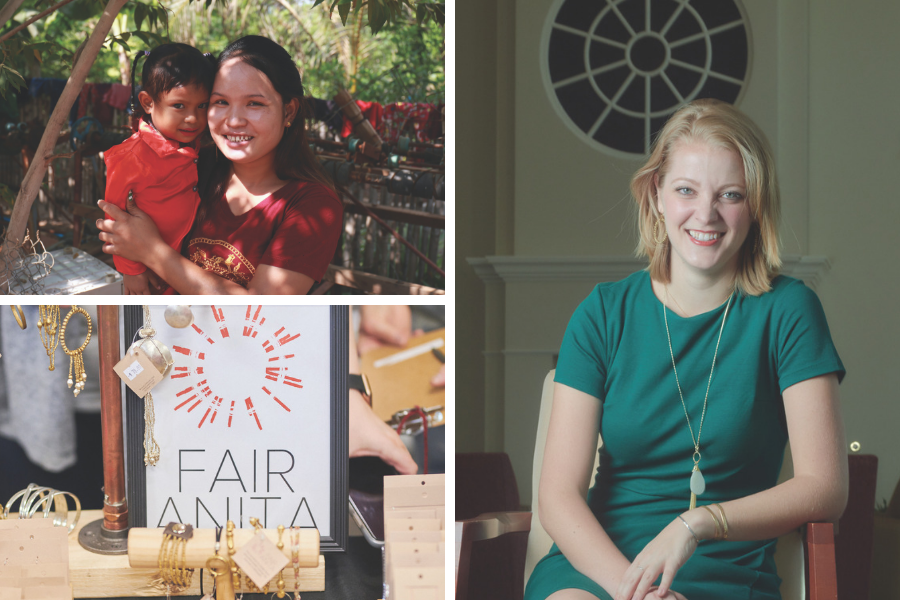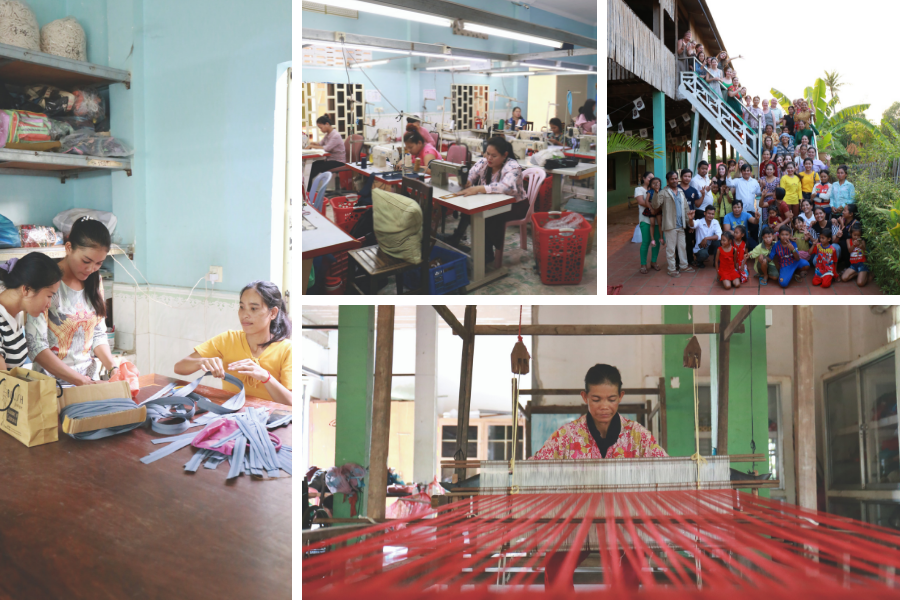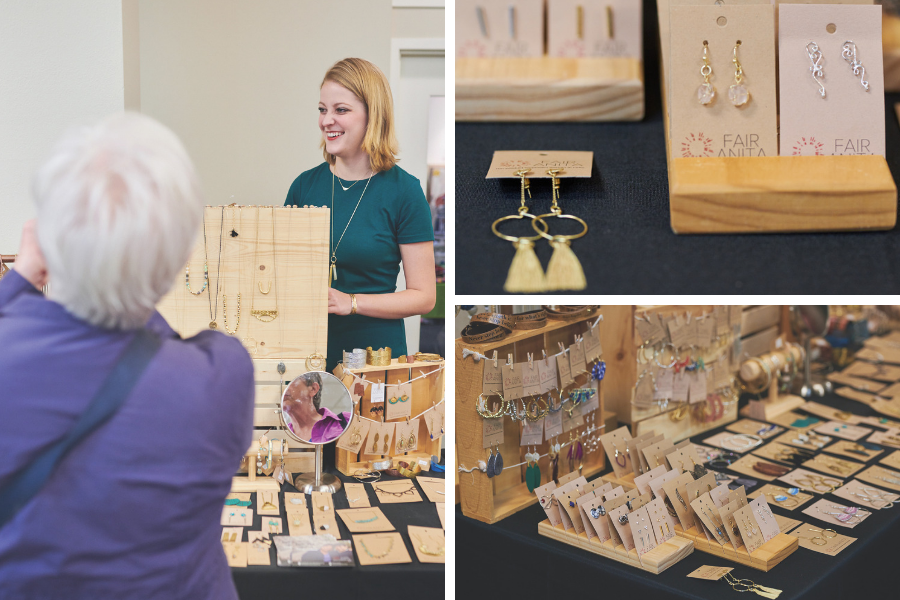
A featured story selected as part of the “Social Enterprise IMPACT Showcase” hosted by the Social Enterprise Alliance-Twin Cities. Read more about the full Social Impact List.

In 2009, Joy McBrien flew down to Peru, determined to learn more about violence against women and understand why Peru had the highest rate of domestic violence of any country. It was part of her quest to discover the pain women around the world have experienced — not only to hear their stories, but to see their resilience.
“Following my own experience with rape, I really wanted to learn more about violence against women in other countries, and it was absolutely part of my healing journey to travel and meet with women who were working through this journey as well,” says Joy.
In Peru, Joy was hosted by a woman named Anita, a social worker in the city of Chimbote. “Anita taught me how, when women hold the purse strings, sales of bread and milk increase, whereas men tend to spend it on alcohol and gambling,” says Joy. The U.N. backs this up, stating that for every dollar a woman makes, 90 cents goes back to her family and community, as opposed to 35 cents by men.
“However, women are largely left out of the formal economy,” Joy adds.
“Anita and I started dreaming about how we could transform some of the world’s poorest communities simply by employing women.”

During her travels, women would often ask Joy to sell their creations in the U.S., as they lacked a viable market in their own communities. But Joy didn’t have a platform to help them.
So, in 2015, at the age of 25, Joy started Fair Anita, a fair trade social enterprise that supports women artisans around the world by acting as a marketplace for jewelry, clothing and accessories.
Fair Anita works with 8,000 women in nine countries: Mexico, Peru, Chile, South Africa, Ethiopia, Egypt, Cambodia, Vietnam and India.
Fair Anita pays their artisan partners at least two to three times minimum wage, as well as providing health insurance and educational scholarships.

When purchasing products from their artisans, they also pay 50-100 percent upfront, when the women start the design process. This is in stark contrast to traditional retail models, which tend to pay suppliers 120 days after they receive the product.
“This cash flow is important to the core of our mission,” Joy says. “We need to make sure women are able to afford to eat, care for their children, buy raw materials, and thrive while making our product — not just after they have delivered the finished pieces.”
Joy believes that businesses like hers can do well and do good — both in the local community and around the world.
And she’s not alone in this belief. Businesses and organizations across the country are becoming social enterprises as a way to integrate social impact into their business models. Joy incorporated Fair Anita as a Public Benefit Corporation (PBC) to prove that you could do impactful things in the world, and still make a profit while doing it.

As a PBC, Fair Anita is legally both for-profit and mission-driven. To measure the success of achieving their mission each year, they release an annual benefit report—which is public and monitored by the state.
Joy says she’s proud how this model of running a business celebrates transparency. “You can hop on our Instagram and meet the women making the products. You can see into their workshop for a glimpse of what we mean by ‘fair working conditions.’ We publish how much money our artisans are actually earning.”
As they look toward the future, Joy’s team aims to grow their ethical supply chains to provide even more sustainable jobs to women around the world. But she also wants to challenge buyers, state-side: “The number one thing we’d like to see more people doing is thinking critically before making their purchases,” Joy says.
“Your dollar makes an enormous impact, and it’s about time we understand the implications of how we spend our dollars.”

Written by Amy Overgaard & Photography by Tyson Crockett. Produced by Pollen Studio.